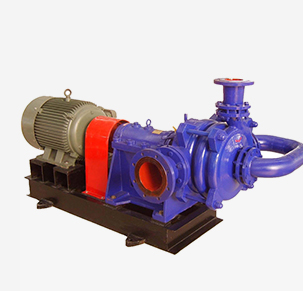English
- Afrikaans
- Albanian
- Amharic
- Arabic
- Armenian
- Azerbaijani
- Basque
- Belarusian
- Bengali
- Bosnian
- Bulgarian
- Catalan
- Cebuano
- Corsican
- Croatian
- Czech
- Danish
- Dutch
- English
- Esperanto
- Estonian
- Finnish
- French
- Frisian
- Galician
- Georgian
- German
- Greek
- Gujarati
- Haitian Creole
- hausa
- hawaiian
- Hebrew
- Hindi
- Miao
- Hungarian
- Icelandic
- igbo
- Indonesian
- irish
- Italian
- Japanese
- Javanese
- Kannada
- kazakh
- Khmer
- Rwandese
- Korean
- Kurdish
- Kyrgyz
- Lao
- Latin
- Latvian
- Lithuanian
- Luxembourgish
- Macedonian
- Malgashi
- Malay
- Malayalam
- Maltese
- Maori
- Marathi
- Mongolian
- Myanmar
- Nepali
- Norwegian
- Norwegian
- Occitan
- Pashto
- Persian
- Polish
- Portuguese
- Punjabi
- Romanian
- Russian
- Samoan
- Scottish Gaelic
- Serbian
- Sesotho
- Shona
- Sindhi
- Sinhala
- Slovak
- Slovenian
- Somali
- Spanish
- Sundanese
- Swahili
- Swedish
- Tagalog
- Tajik
- Tamil
- Tatar
- Telugu
- Thai
- Turkish
- Turkmen
- Ukrainian
- Urdu
- Uighur
- Uzbek
- Vietnamese
- Welsh
- Bantu
- Yiddish
- Yoruba
- Zulu
Telephone: +86 13120555503
Email: frank@cypump.com
Dec . 10, 2024 03:45 Back to list
Efficient Solutions for Wastewater Management with Advanced Sewage Pumps
The Importance of Sewage Pumps A Vital Component in Wastewater Management
In our modern society, the management of wastewater is an essential process that ensures public health and environmental sustainability. At the core of this system lies an often-overlooked component the sewage pump. These pumps play a crucial role in transporting wastewater from homes and businesses to treatment facilities, and understanding their function and importance is vital for both property owners and environmental advocates.
Sewage pumps are designed to handle the tough job of moving wastewater that contains solids and other debris. Unlike standard sump pumps that primarily handle clean water, sewage pumps must be robust enough to deal with the gritty, complex nature of sewage. They are typically submersible pumps that operate underwater, with their motors sealed to prevent damage from the fluids they are pumping.
The Importance of Sewage Pumps A Vital Component in Wastewater Management
One of the primary reasons why sewage pumps are essential is the prevention of flooding. In areas where gravity drainage is not feasible, such as basements or low-lying regions, sewage pumps act as an essential lifeline. Without them, wastewater can back up into living spaces, causing extensive damage and creating unsanitary conditions. Proper installation and maintenance of sewage pumps can significantly reduce the risk of these hazardous situations.
sewagepump

Reliability is another critical aspect of sewage pumps. Property owners must ensure that their sewage pumping stations are functioning correctly to avoid emergencies. Regular maintenance, such as checking the discharge lines for clogs and ensuring that the float switch works properly, is necessary to maintain the pump's efficiency. Failing to perform routine checks can lead to pump failure, which can disrupt the entire wastewater management system.
Moreover, sewage pumps are vitally linked to environmental concerns. When sewage cannot be effectively processed, it can overflow into streets, rivers, and lakes, leading to severe contamination and threatening ecosystems. Understandably, this presents a risk to public health, as untreated sewage can carry pathogens and chemicals harmful to humans and wildlife. Sewage pumps, therefore, not only facilitate the movement of waste but also play a pivotal role in protecting our ecosystems and ensuring clean water supplies.
Advancements in technology have also led to more efficient and environmentally friendly sewage pump systems. Modern pumps are designed with features to reduce energy consumption and improve performance. For instance, variable speed pumps can adjust their flow rates based on the level of wastewater, which not only saves energy but also enhances the lifespan of the pump. Additionally, smart technology enables remote monitoring, allowing property owners to detect issues before they become major problems.
In conclusion, sewage pumps are a vital element in the wastewater management infrastructure. They ensure the safe transport of sewage, protect against flooding, and contribute to environmental safety. As urban areas continue to grow and more people inhabit them, the demand for effective sewage management systems will only increase. This highlights the importance of investing in and maintaining reliable sewage pump systems to uphold public health and protect our invaluable ecosystems. Proper awareness and management practices surrounding sewage pumps can lead to better water quality and a healthier environment for future generations.
-
ISG Series Vertical Pipeline Pump - Chi Yuan Pumps Co., LTD.|High Efficiency, Energy Saving, Low Noise
NewsJul.30,2025
-
ISG Series Vertical Pipeline Pump- Chi Yuan Pumps|High Efficiency&Low Noise
NewsJul.30,2025
-
ISG Series Vertical Pipeline Pump-Chi Yuan Pumps Co., LTD.|High Efficiency&Energy Conservation
NewsJul.30,2025
-
ISG Series Vertical Pipeline Pump - Chi Yuan Pumps Co., LTD.|Advanced Hydraulic Design&Energy-Efficient Solutions
NewsJul.30,2025
-
ISG Series Vertical Pipeline Pump - Chi Yuan Pumps Co., LTD.
NewsJul.30,2025
-
ISG Series Vertical Pipeline Pump - Chi Yuan Pumps Co., LTD.|energy-efficient fluid handling&industrial durability
NewsJul.30,2025










